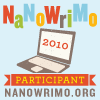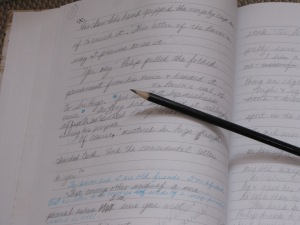
My goal for my vacation was to create 50 new writing prompts. I managed 30, which means, from one perspective, that I had a very lazy and enjoyable vacation. And which, quite frankly, is really okay. Technically I have another two days, so I’ll be working, in between loads of laundry, to create the other 20 by Sunday night. In the meantime, I thought I’d share what I came up with here. I’ve added them under the Writing Prompts tab, too.
Do you reread books? I do. In fact that’s what I’ve been doing for the past two weeks. I’m a fan of the Dorothy L. Sayers’ Peter Wimsey novels, and discovered that they could be purchased very easily and inexpensively for my Kobo–a dangerous discovery for someone like me. Anyhow, I’ve been rereading all the ones featuring Harriet Vane, and I’ve really enjoyed them. Perfect vacation reading. Like visiting old friends. What kind of books do you reread?
Hope you have a great weekend, and if writing is on your agenda, maybe one of these prompts will help you with your story.
1. See if these pairs of images inspire a story or poem: Blue pens and ice cream, flashlights and doorknobs, tea cups and sunglasses.
2. What was your character’s favourite childhood movie? Which movie scared him/her? (For me, it was when Pinocchio got swallowed by the whale.) From your character’s point of view, write his/her memoires of seeing these films.
3. Use one, some or all of these words in a story or poem: door, bottle, corner, light, smile, star.
4. Try one of these first lines to start a story:
The ring hit the empty garbage can with a clunk.
Why are you leaving?
I heard the bang and ran.
5. Can you think of a story for one of these titles?
Wings and Lace, Emerald Crown, Longing, Full Stop, Star Struck, Run, Hitching a Ride.
6. Can you work these lines of dialogue into a scene or a story?
“You missed!”
“I know.”
“But you never miss.”
7. What’s your favourite song or soundtrack? Explain why this music is special to you and why someone should listen to it.
8. See if these pairs of images suggest a story or poem: yellow lilies and rain, smoke and a mirror, lightning and a wing.
9. Try one of these opening sentences to begin a story or scene:
Snow. Again.
I missed the sign that read: Caution Wet Floor.
Loose gravel crunched beneath my feet.
I thought she looked familiar.
10. They say that our sense of smell is the most evocative of our senses. When I smell lavender I recall memories of my grandmother. When I smell fried onions, I think of the Canadian National Exhibition, and am swamped with images from many childhood trips there. What smells can trigger your memories? Where do those memories lead when you start to write them down?
11. Consider starting your story with one of these actions:
Someone running away
Someone or something getting lost
Someone being frightened
Someone or something falling.
12. Are you afraid of heights, spiders or crowds of people? What is your character afraid of?
13. Use one, some or all of these words in a story or poem: cup, bloom, note, cave, sign, red.
14. What does your character think and feel when she/he looks in the mirror?
15. Can you work these lines of dialogue into a scene or a story?
“It’s too dark. I can’t see.”
“We have to keep going.”
“YOU have to keep going.”
16. What was your character’s favourite childhood toy? What do these toys tell you about your character? Did your character learn any special skill while playing with these toys that might help him or her in your story?
17. See if these pairs of images inspire a story or poem: spoons and blue jeans, running shoes and a rainbow, tea cups and sunglasses.
18. Try one of these opening sentences:
I thought flying would be harder.
Jill disappeared on Wednesday.
I was sure I heard the sound of wings.
19. Who is your favourite modern author? Go back and reread just the first pages of his or her novels. Look closely at the techniques used to get and keep the reader’s attention. Look at your own first pages and see if you can incorporate any of those techniques to make the beginning of your story more appealing to readers.
20. Consider starting your story with one of these actions:
Someone climbing
Someone lighting a fire
Someone throwing something.
21. What is the one thing that your character doesn’t want anyone to find out about him or her?
22. Can you work these lines of dialogue into a scene or a story?
“I was told to bring you here.”
“Who told you?”
“You’ll find out soon.”
23. Use one, some or all of these words in a story or poem: pitcher, nail, bag, yellow, edge, chain
24. Is your character a good sailor or does s/he get motion sickness? Can either of these characteristics be used in your story? An ocean voyage? A ride on a roller coaster?
25. Try one of these opening sentences:
Eldor was a different kind of capital city.
Chains rattled.
It was my turn to dig.
26. Who is your reader? Take some time and describe your reader. How old? What interests? Favourite TV shows? Where does he or she read? What makes your reader put a book down? What makes him or her smile or feel sad? What makes him or her laugh? Make your reader as real as possible, and think of this reader when you sit down to write.
27. Here are some lines of dialogue for your story.
“It’s cold.”
“Yes.”
“I’m freezing!”
“Keep moving.”
28. Try one of these opening lines:
The forest sighed.
There was only one way to find out if this would work.
They were wrong. Blood did not look like ketchup.
29. Use one, some or all of these words in a story or poem: fence, line, sharp, red, cord, leaf, window
30. What does your character do at the beach? Play a competitive game of beach volleyball? Laze in the sun? Read? Catch up on email? Swim? Avoid the crowds? What do his or her preferences tell you about your character that you might not have known before?
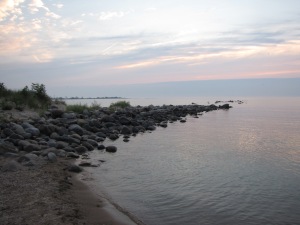

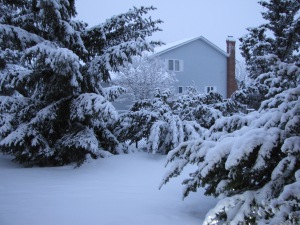
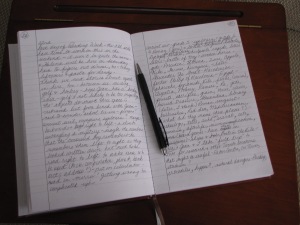
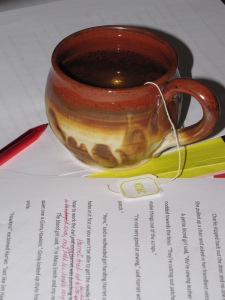 Back in October
Back in October 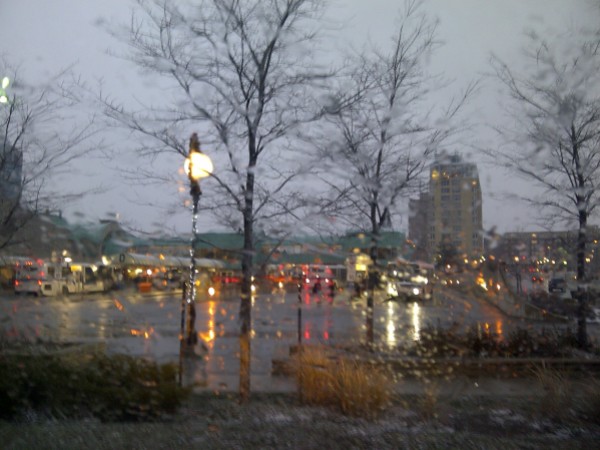
![wrt-main-header-bg-logo[1] The Writer Magazine Header](http://wrightingwords.files.wordpress.com/2011/07/wrt-main-header-bg-logo1.jpg?w=150&resize=150%2C79)
